Women in Romcoms: To All the Boys I've Loved Before 1 & 2
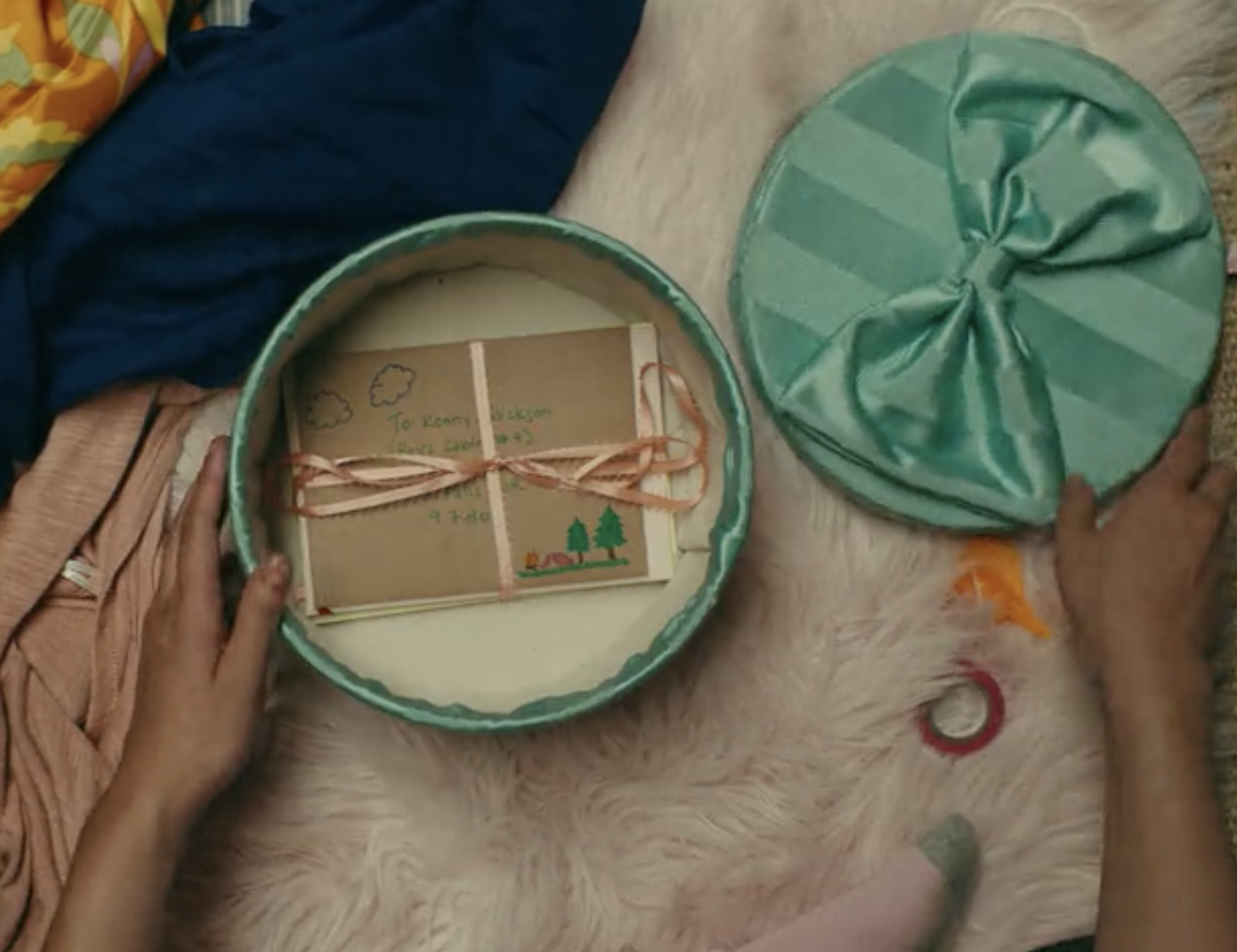
Romantic comedies and romance films are sometimes looked down on with contempt. Very often considered as brainless "chickflicks" for pure entertainment purposes, it is easy to forget they can condition our behaviours in our own real life romantic relationships. Our behaviours, standards and expectations have been affected if not modeled on what romance films have shown.
Before even having been in love or in a relationship, everyone has an idea of what it should look like, how we should behave, what is right and wrong. Where do we take it from ? Romance in films.
Society can be telling us one thing but unless we see it enforced in our visual media, it would never be internalised as an accepted norm. For example, women have been told that it's okay to ask a guy out but not seeing it on screen. Until we see them, change can stay superficial and might not reach the mainstream audiences.
Romance film have for a long time dictated to women - who are the target audience - what to do, how to behave, how to look, what is acceptable or not in romance. They have kept women in a place of passive object. Because of the power these films have on us and our lives, we should learn to look at them critically and see beyond the glossy facade.
Let's take a look at To all the boys I've loved before 1 & 2.
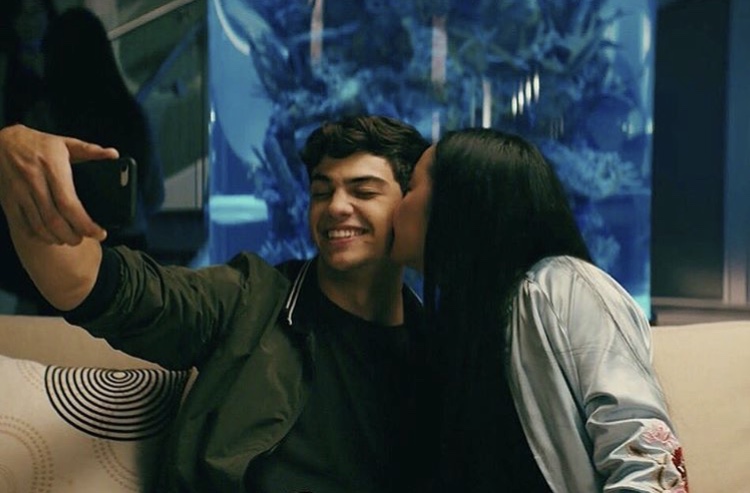
In the first film, Lara Jean (Lana Condor) lives romance as a fantasy until 5 love letters she had written get send to the boys in question. Trying to avoid the consequences, she ends up in a fake relationship with the popular Peter Kavinsky (Noah Centino) who is trying to use her to get back with his girlfriend, Gen (Emilija Baranac). The situation complicates when real feelings come into the mix.
All the exposition is about acknowledging the power of romance films and books. Lara Jean is reading a love book while imagining herself as the main character in her head. Her whole representation of romance comes from fictional sources like seen in the contract scene with Peter. She agrees to let him put his hand in her back pocket as in the film Sixteen Candles.
Her references are not based on experience but fantasy and representation of fantasy in our culture. Although, it is surprising there is no more of references towards contemporary romantic comedies. It seems like Lara Jean is especially interested in the 80s romantic comedies.
From the first five minutes, we understand romance is a big part of Lara Jean's life. Her friendship with Josh has been affected since her sister started dating him. She wrote him a love letter when it started meaning that her feelings were never only friendly towards him. This film seems to assume opposite sex friendship is not possible because one of them always catches feelings and wants more. The film was released in 2018 and it would be reasonable to expect such assumptions to not be on screen anymore. The only male friend Lara Jean has is a gay classmate.
Romance has affected Lara Jean's friendship with her childhood best friend, Gen. They do not talk because Lara Jean kissed Peter Kavinski at spin the bottle when they were kids and Gen had a crush on him. Even if the film is a romantic comedy, you would hope that broken friendships might help internal change rather than be based around boys and their relationships to them. It simplifies the dynamic between the two to the extreme and depicts it as if romance was the only important aspect of life.
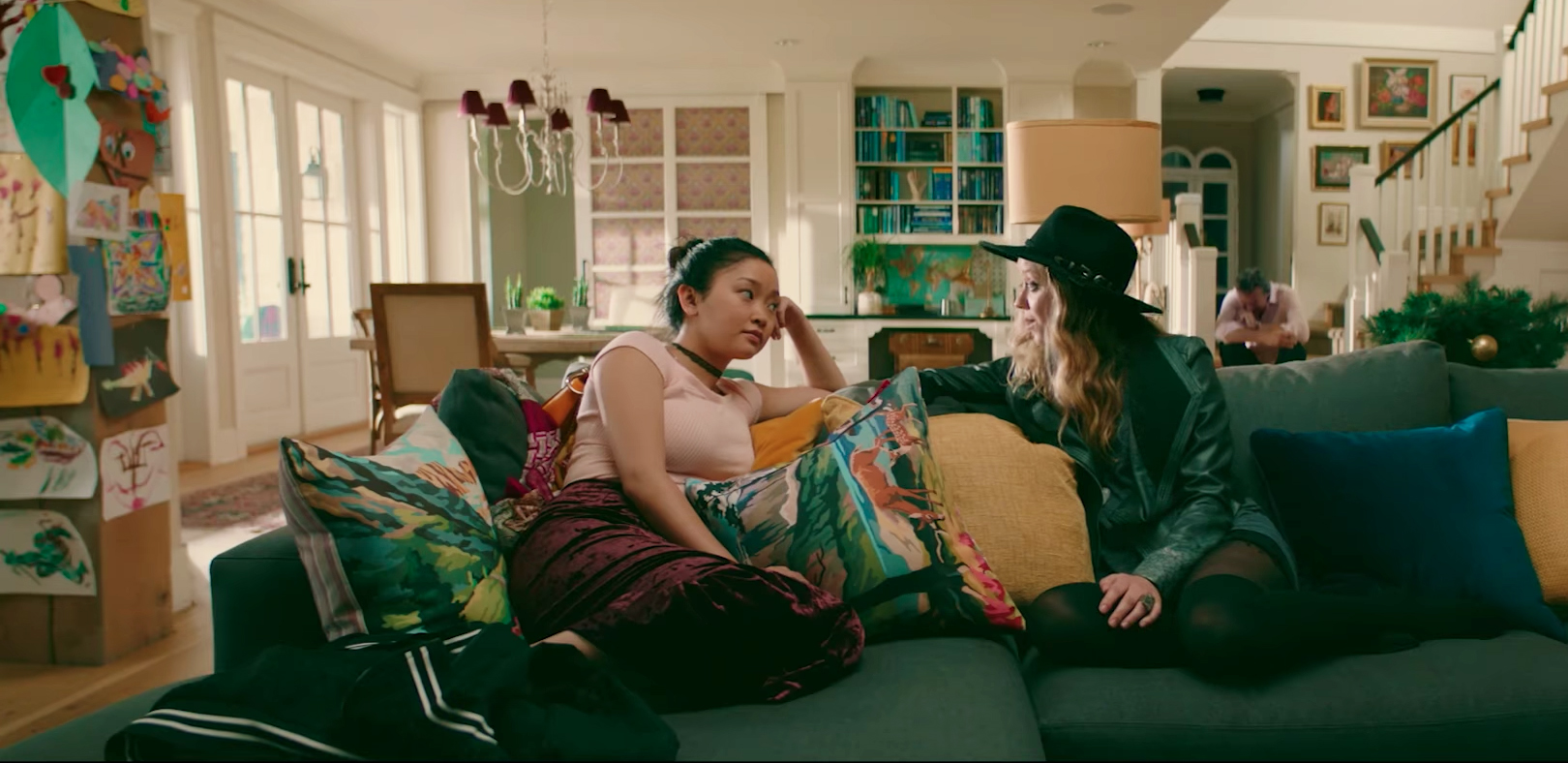
If the film falls into some clichés, it also subverts the genre. The number of letters is interesting because it's not about her only and undying love but there have been a few. It breaks the myth of the one and only and the idea we can only really love one person. There is only true love when we choose to pursue a relationship with the person.
Lara Jean chose Peter but she would have probably been as happy with Josh or anyone else from the letters. It breaks the myth of the one and only. The right one is the one you chose and you can love many people during your life. It's refreshing to see a romcom putting the loves of her life in the spotlight.
Lara Jean differs from the usual romcom female leads because she does not change physically. In many films, one of the structure point is the makeover. There are no makeover in To all the boys I've loved before. She is not insecure about the way she looks and there is no deluded belief that her clothes will work as a revelation of an inside change. Peter falls for her as she is.
The underlying message of self-acceptance, self-love and confidence is empowering. This is not telling girls they should look a certain way but telling them they can look how they want to and they do not have to change. Moreover, Lara Jean is not at the bottom of the social ladder. She is a high schooler that is not popular like most of us when we were in high school. She is very easy to relate to.
She gets in a fake relationship with Peter because she tries to avoid Josh and the consequences of her letters. She ends up in a fake relationship but it is the result of her own actions. Her actions put her into a mess but she is an active character. It proposes a new dynamic. The fake relationship is a well-known romance trope but the fact that she puts herself in it is a twist on a well-known structure.
She is responsible of her own destiny. When she negotiates the contract with Peter, she does not let go of her principles. Kissing is something important to her and she does not let Peter convince her otherwise. She stands up for herself which is refreshing.
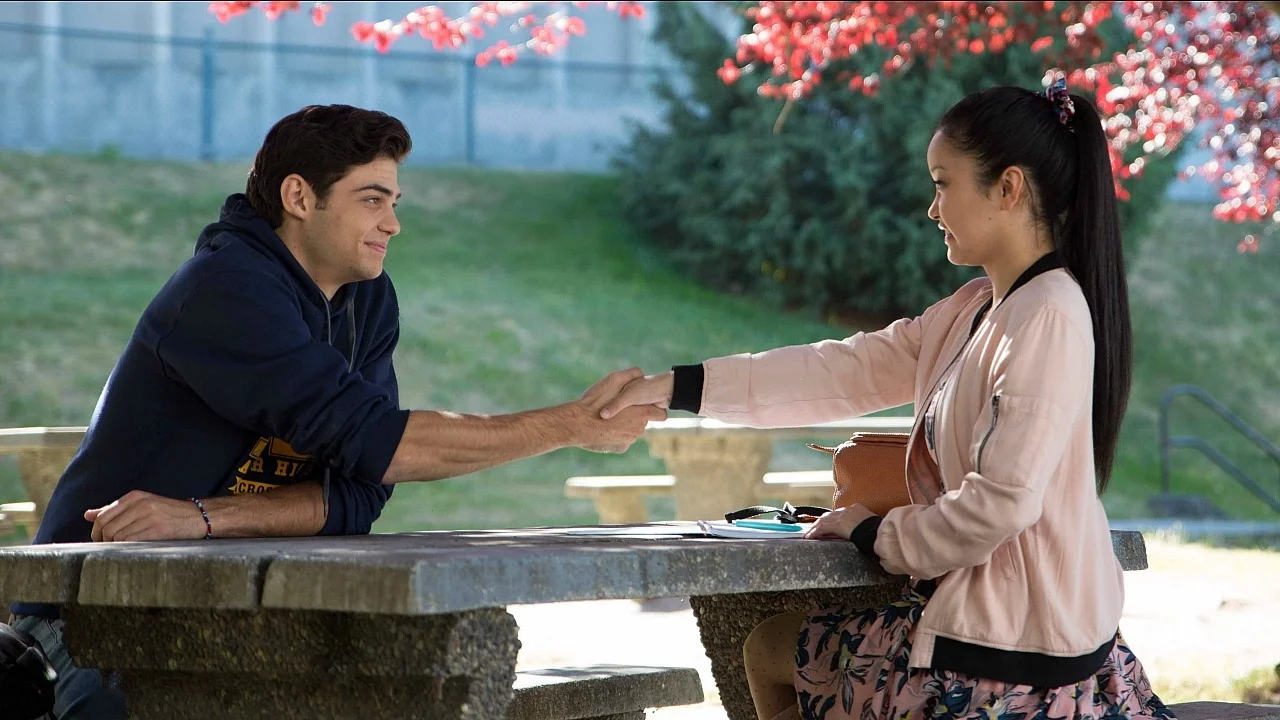
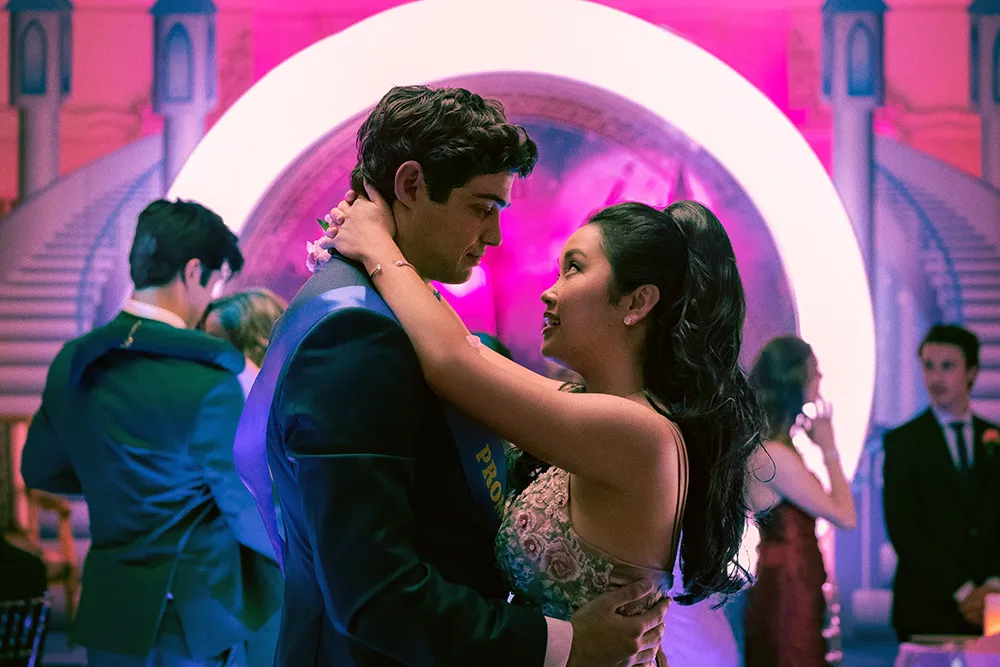
The only caveat of the film is the scene where Peter and her dad coerce her into going to the party. It is not respecting her choice for the sake of narrative. It allows us to wonder : would there have been another way to have her at the party without disrespecting her consent ?
If as Peter says, parties are in the contract, why not just bring that up ? If it is in the contract she voluntarily agreed to, she has to respect the rules. But going over her consent is wrong because then how anyone is supposed to understand that no means no when films show otherwise ?
The first film closes on her and Peter getting together for real. Here is the happy end. In this version, it's not the boy that gets the girl but the girl that gets the boy. She encourages girls to take matters in their own hands and not waiting for Prince Charming to notice them and ask them out. The story in itself is complete.
Usually, you do not look beyond happily ever after because once it's achieved, you do not challenge it. Challenging it is challenging our society norms that put relationships as the norm and being single as an anomaly. The very existence of the sequel - even though based on a book series- is something different. In the second film, Lara Jean and Peter are dating. He is her first boyfriend and she does not know how to "relationship".
She overthinks and feels uncomfortable at the idea he had his firsts with another girl while she has hers with him. She feels like it diminishes what they have. At the same time, the consequences of her letters being send out still follow Lara Jean with John Ambrose coming back into her life. What if Prince Charming was the wrong one ? What if the relationship is not what it seems to be ?
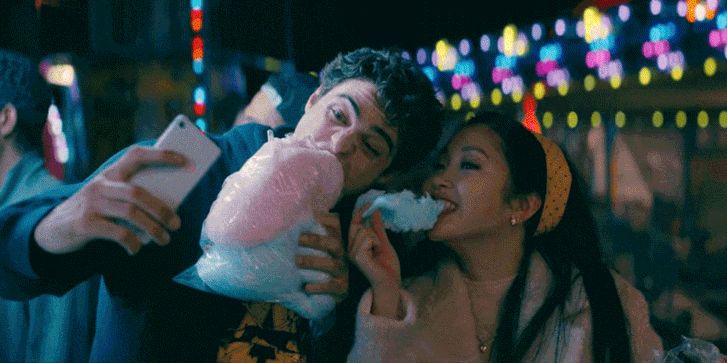
The outlook on Lara Jean's behaviour is quite accurate. Learning how to be in a relationship without the guidelines after having fantasized it for so long is quite a trip back to Earth. Her questions are legitimate and show us the consequences of romantic expectations and how they can destroy relationships that can not live up to them.
She learns to see the flaws in Peter and love him not despite them but because of them. The fact that he takes the last slice of pizza without asking is not something she has seen from the beginning. She is not sure if she likes it but loving someone is not only taking the nice parts of a person and rejecting what we do not like.
Her questioning her relationship as John Ambrose surfaces back into her life raises interesting questions : what to do if you have a crush ? Is it wrong ? Is it normal to feel this way ? Does this mean that you do not value your relationship ? Does it mean she has to act ? It is also a lesson on making a difference between deep feelings of love and trust and the fleeting attraction of a potential new person.
Her jealousy towards Gwen and her feeling not good enough is a valid point. But what is interesting is them not blaming Peter but Lara Jean realising he is not doing anything to make her feel like this but she does it to herself. One of the most powerful lines of the film is "I realised it's not Peter that needed to get over you, it's me that needed to get over you."
Instead of blaming, it is realising there are things that come from us and we are the only ones able to control them and solve the problem. When she confronts Gen about her own feelings and seeks out closure, Lara Jean once again takes ownership of her life, her feelings. She chooses not to be controlled by her feelings. It is a bold message for a romantic comedy. The film does not go for easy drama but shows how to get rid of useless drama created by ourselves.
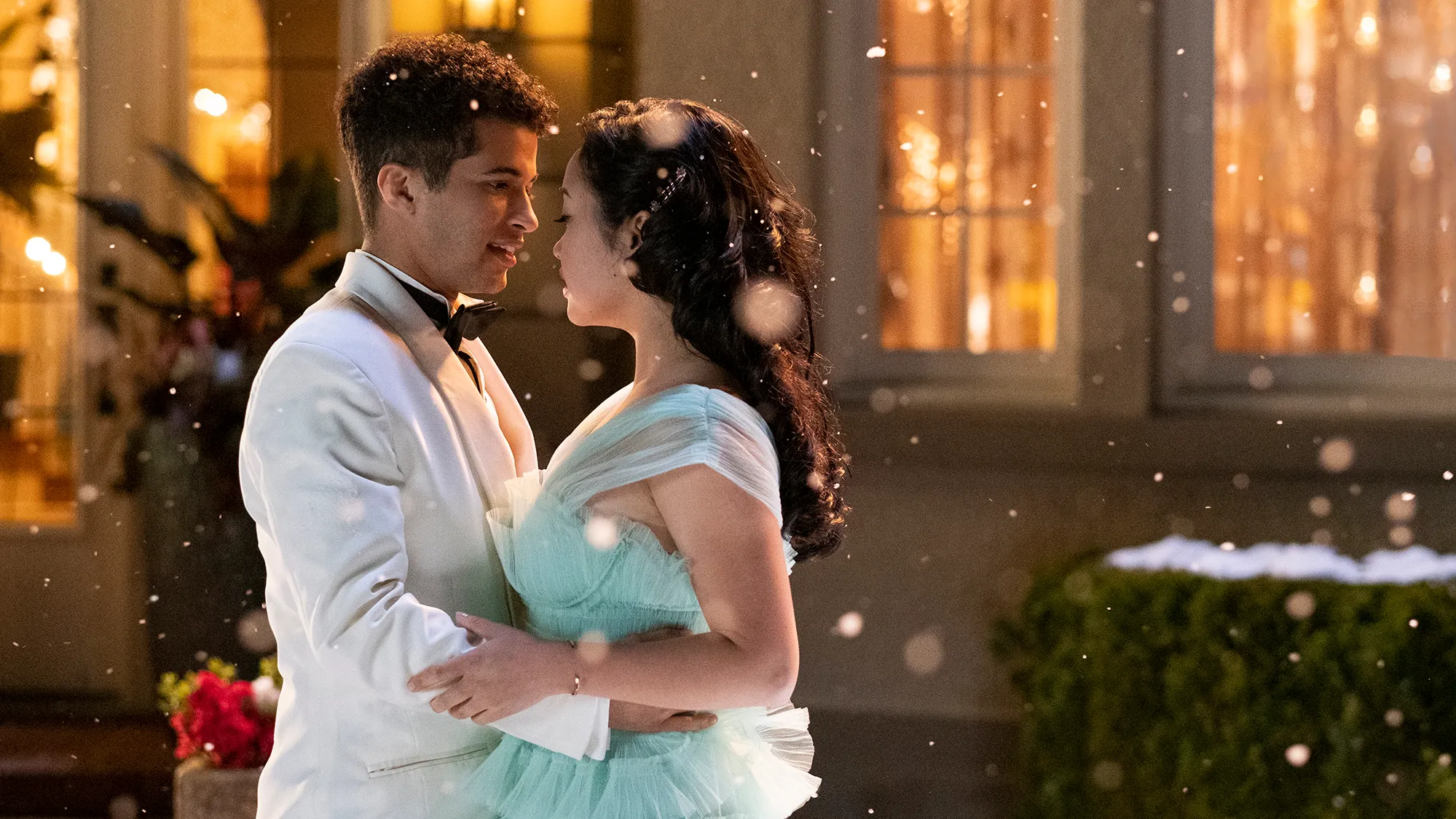
The only thing missing is sexuality. It is touched on by Christine when she tells Lara Jean she needs to know herself and how to pleasure herself before she gets with anyone. Lara Jean and Peter talk about it because she is afraid of him missing it and she is not ready for it yet. It would have been interesting to go further in Lara Jean's relationship to sex.
The first film has explored her relationship to desire, fantasy but only from the spiritual side of it. The second one should have been a way to get into the physical side of it and how she feels about it. Having planted seeds about the subject and never mentioning it again feels like denying it is a question that underlies the whole film. It is the elephant in the room that should have been addressed in some form.
The film allows the characters to make mistakes and grow from them. Stormy, the old lady from the retirement house, said to our protagonist that "sometimes it's by kissing the wrong boy that you know what is right". She pushes Lara Jean to go and tell Peter how she feels with the idea that you can make mistakes and try to repair. Sometimes, it's only by losing something we learn its value.
For the purposes of the genre, the happy end was inevitable but even without it valuable life lessons are taught. To all the boys I've loved before PS : I still love you shows how complex love can be and that it is far away from princess stories. True love is imperfection and this is what makes it valuable.
To all the boys I've loved before and its sequel are more than entertaining. The female character is an active, modern young woman who is confident in her body and learns to be confident with her vulnerability. Femininity is not advertised as a unique rigid norm and love is not reduced to a happily ever after. It subverts the audience's expectation of romance on screen and offers valuable lessons for younger audiences. It is entertainment but with a strong, empowering message. Who said entertaining meant brainless ?